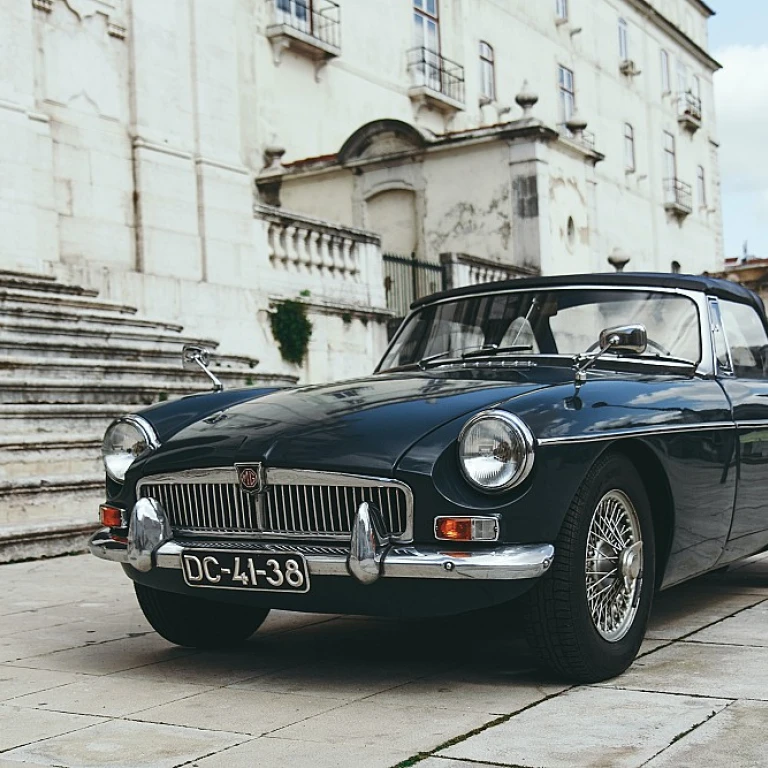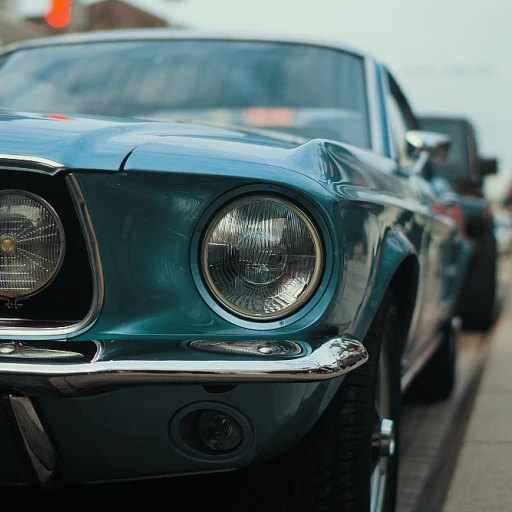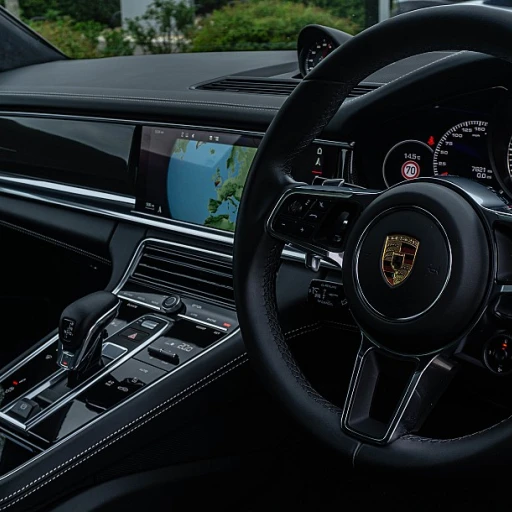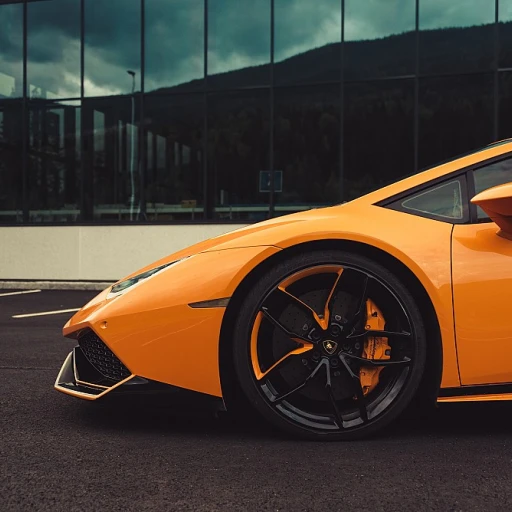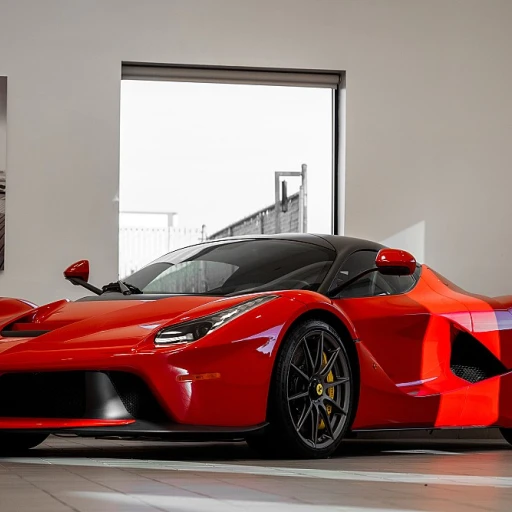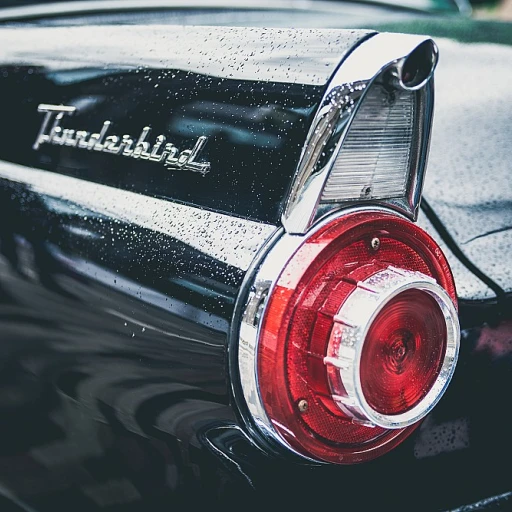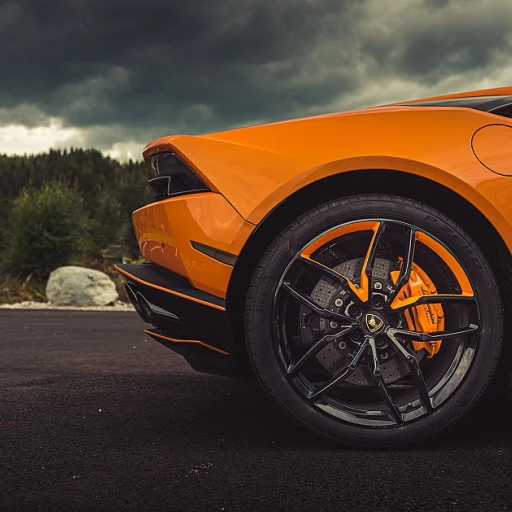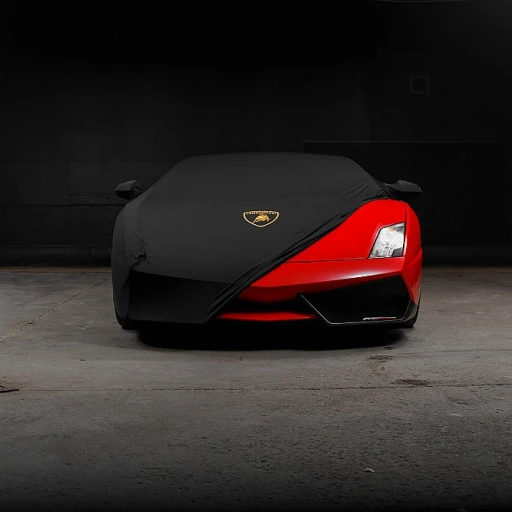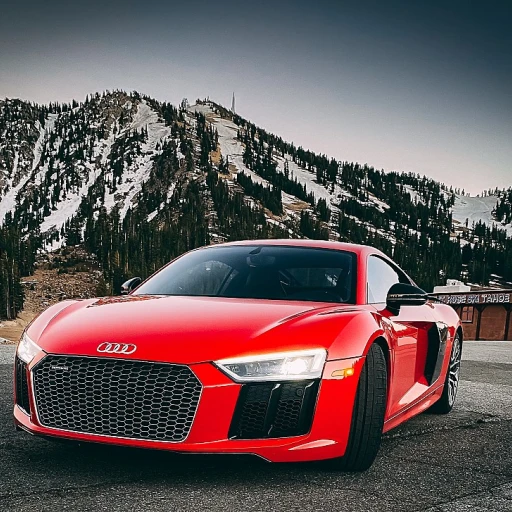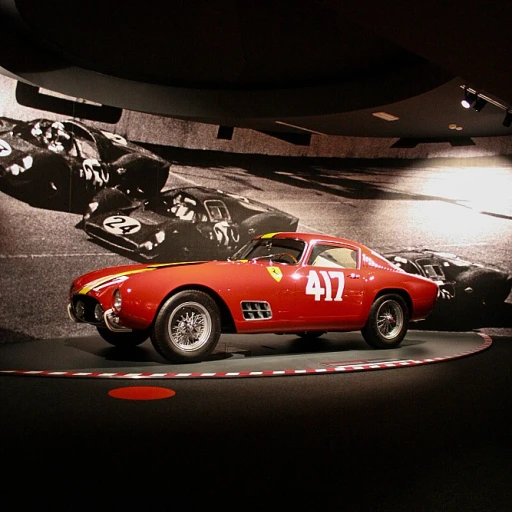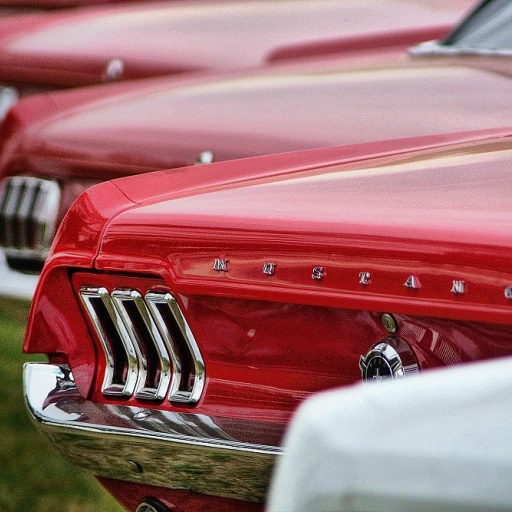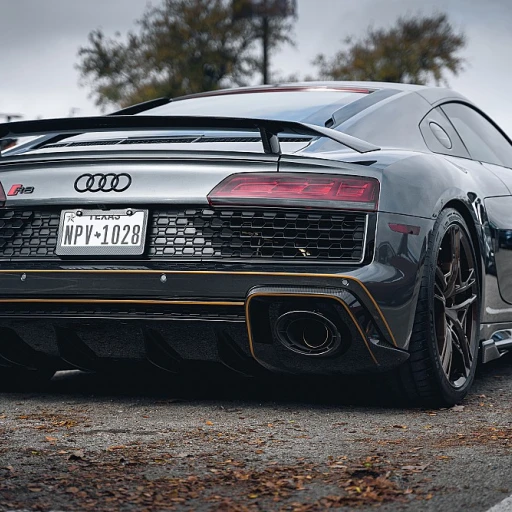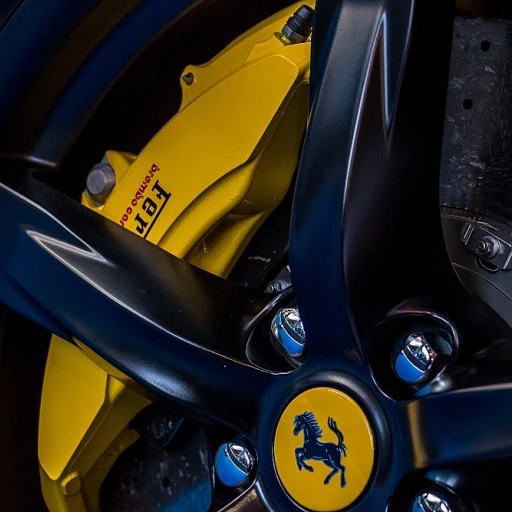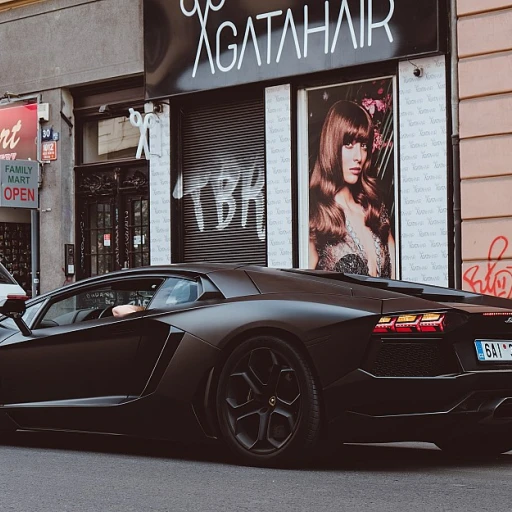
The evolution of luxury motor cars
The captivating charm of luxury motor cars
Historical milestones that shaped luxury motor cars
Over the years, luxury motor cars have evolved significantly, drawing from a rich history that dates back to the early 20th century. The transformation from classic models like the Rolls Royce Silver Ghost of 1907 to modern vehicles like the Mercedes Benz S-Class is a testament to the advancements in engineering, technology, and design. In the early 1900s, owning a luxury car was a symbol of wealth and status, a notion that has only expanded over time. Today’s market offers an incredible range of high-end cars that blend opulence with cutting-edge technology.
Pioneers of luxury automobiles
Several brands have been instrumental in shaping the landscape of luxury motor cars. Brands like Rolls Royce, Bentley, and Mercedes Benz are renowned for their history and dedication to excellence. For instance, Rolls Royce first made a mark with vehicles featuring handcrafted components and customization options, ensuring each car was unique. In the 1950s, Mercedes Benz introduced the 300SL, known for its revolutionary gull-wing doors and advanced aerodynamics. These brands set the benchmark for innovation and luxury, pushing the industry to new heights.
Technological advancements through the decades
The evolution of luxury cars has also been substantially influenced by technological advancements. In the 1980s, BMW introduced the first car integrated with an anti-lock braking system (ABS), revolutionizing vehicle safety. More recently, we’ve seen innovations like the fully digital dashboard in the 2018 Audi A8, offering drivers a more immersive and connected experience. These technological milestones not only enhance driving safety but also streamline the car buying experience by adding layers of convenience, making every ride an event in itself.
Enduring appeal of vintage luxury cars
Even as technology continues to evolve, vintage luxury cars hold a timeless allure. Collectors and enthusiasts often seek out iconic models from the mid-20th century, like the 1960s Ferrari 250 GTO or the Ford Mustang Shelby GT500. These vehicles are treasured for their historical significance and unique design elements that modern cars can’t replicate. The nostalgia and craftsmanship associated with vintage luxury cars make them valuable assets, often fetching millions at auctions.
If you’re interested in exploring more about how luxury motor cars have enchanted their owners through the ages, check out this comprehensive guide for a deeper dive into the world of opulence and performance.
The role of brand prestige in luxury motor cars
The emblem of excellence: Brand prestige in luxury motor cars
When talking about luxury motor cars, brand prestige plays a pivotal role. The badge on the front grille isn’t just an emblem; it’s a symbol of status, historical success, and profound craftsmanship. This is especially important when mentioning names like Mercedes-Benz, Rolls Royce, and Porsche. These brands have not only maintained their elite status but have continuously pushed the boundaries of innovation and exclusivity. Take Mercedes-Benz, for instance. The German automaker has a storied reputation for engineering excellence that dates back over a century. According to a 2023 report by J.D. Power, Mercedes-Benz consistently ranks high in terms of customer satisfaction, with over 75% of owners expressing complete satisfaction with their vehicles.Crafting an image of luxury
Luxury car brands invest heavily in creating a unique identity. This involves meticulous craftsmanship and innovative design elements that set them apart. For example, Rolls Royce is known for its "Magic Carpet Ride"—a suspension system that provides an exceptionally smooth ride. It’s these little touches that make a big impact, putting the focus on a timeless sense of opulence. A study by Bain & Company in 2022 highlighted that brand heritage and aesthetics remain top factors influencing luxury car purchases. More than 60% of the respondents identified brand legacy as a key reason for choosing a specific luxury vehicle.Driving exclusive experiences
When you’re behind the wheel of a luxury motor car, the experience is unparalleled. From the plush leather seats to advanced infotainment systems and intuitive driving aids, brands like Porsche and BMW have perfected the art of marrying technology with unparalleled comfort. According to a survey by Statista, the average customer satisfaction score for luxury vehicles is significantly higher compared to non-luxury counterparts, sitting at around 85%.From paved roads to the stature walks
It’s not just about the car; it’s about the lifestyle. Owning a Lamborghini Urus or an Aston Martin transcends mere transportation. It's an attribute to your lifestyle and status. The global demand for luxury cars saw a 12% rise in 2022, as per a report by McKinsey, signifying that more people are willing to invest in these dream vehicles. So, when you're thinking of buying a new vehicle, consider not just the car but the aura and prestige that come with it. Brands like Audi, Toyota, and even Ferrari have made it clear that brand heritage and ongoing innovation are what keep them at the pinnacle of the luxury car market. For an in-depth read on the nuances of opulence and performance in 2023's luxury cars, visit 2023 luxury cars: the ultimate guide to opulence and performance.Design elements that define luxury motor cars
Sleek exterior features
Luxury motor cars are unmistakable on the open road. Their sleek, aerodynamic lines aren't just for show—they reduce drag, improving fuel efficiency and performance. Take the Aston Martin, for example. Its contours are an art form, blending beauty and engineering seamlessly. Explore more about how these elegant curves set the top luxury cars apart.Gloss black and carbon fiber accents
Step closer, and you'll notice the meticulous attention to details like high-gloss black finishes and carbon fiber accents. These aren't just additions—they're statements. The poles apart experience of a Rolls Royce versus a Lamborghini is like night and day, but both use carbon fiber to enhance the vehicle's aesthetics and performance. It's all in the craftsmanship.High-end wheels and rims
Ride down a city street, and the wheels will catch your eye. Luxury motor cars often sport wheels that are not only larger but feature precision engineering and high-end materials. Take the Porsche, with its signature alloys designed for superior road grip and style. It's a game-changer when it comes to both performance and looks.The art of interior design
Inside a luxury car, you step into another level of comfort. We're talking hand-stitched leather, real wood trim, and state-of-the-art technology. The Mercedes-Benz's cabin is a perfect example—elegance and utility, all in one. Imagine the soft glow from ambient lighting while you relax in heated, massage-equipped seats—it's like having a spa on wheels!Customization and personalization
One of the most thrilling aspects of luxury motor cars is the nearly infinite customization options. Want a unique paint job or bespoke interior touches? Luxury brands like McLaren and Ferrari can make it happen. This array of options ensures your vehicle suits your style and stands out from the crowd.Ready to see these design elements in action? View an example that showcases some of the best design features in luxurious sports cars. Investing in a luxury car means driving something truly spectacular—both inside and out!
The unmatched driving experience of luxury motor cars
Precision-engineered performance
When talking about the driving experience of a luxury motor car, it’s impossible to ignore the sheer joy of precision-engineered performance. Brands like Porsche, Ferrari, and McLaren invest substantial resources into ensuring their vehicles not only meet but exceed the expectations of enthusiastic drivers. Consider the Porsche 911, which features a near-perfect weight distribution and innovative suspension system to deliver unrivaled handling and performance on both city streets and racetracks. According to a study by J.D. Power, 88% of luxury car owners report high satisfaction with the performance of their vehicles, underscoring the importance of engineering excellence.
Innovative driving technologies
Advanced driver-assistance systems (ADAS) are now a staple in the luxury motor car segment. Features like adaptive cruise control, lane-keeping assist, and automated emergency braking are not just add-ons but integral components that enhance the driving experience. Mercedes-Benz, for instance, offers the Distronic Plus system in many of its models, ensuring a smooth, safe, and stress-free driving experience. This fusion of high tech with high performance creates a driving experience that feels almost intuitive.
Comfort and quiet sophistication
Luxury motor cars are designed to provide an unparalleled level of comfort. Rolls-Royce, for example, incorporates extensive soundproofing with over 300 pounds of soundproofing materials, ensuring that the cabin remains serene even at high speeds. Additionally, high-quality leather seats, often made from calfskin, provide a sumptuous feel that’s miles ahead of standard car interiors, enhancing long-distance comfort.
Exclusivity and high-end customization
One of the defining aspects of the luxury motor car experience is the level of customization available. Brands like Aston Martin and Bentley offer bespoke services, where owners can tailor everything from the color of the exterior to the stitching on the seats to their exact preferences. For example, Lamborghini’s Ad Personam program allows buyers to customize their Urus with a myriad of options, ensuring that each vehicle is a unique expression of the owner’s taste and personality.
Personal stories and case studies
Consider the story of a Chicago-based entrepreneur who fulfilled his lifelong dream of owning a Ferrari 488. He recounts the “thrill of hearing the engine roar to life” and how driving the car transforms his daily commute into an exhilarating experience. Another case study involves a family in Los Angeles who invested in a pre-owned BMW 7 Series. The luxury and performance offered by the BMW vastly improved their road trips, making long drives not just bearable but enjoyable.
Luxury motor car features that enhance comfort and convenience
{State-of-the-art infotainment systems
Modern luxury motor cars pack a punch with their state-of-the-art infotainment systems. Brands like Mercedes-Benz, Audi, and Porsche are leading the way. A report by J.D. Power highlights that 71% of luxury vehicle owners are highly satisfied with their in-car technology. These systems often include large touchscreen interfaces, voice control, and seamless smartphone integration through Apple CarPlay and Android Auto.Advanced driver-assistance features
Safety and convenience are paramount in luxury vehicles. Advanced driver-assistance features (ADAS) such as adaptive cruise control, lane-keeping assist, and automatic emergency braking provide a safer, more relaxed driving experience. According to a study by the Insurance Institute for Highway Safety (IIHS), vehicles equipped with these features reduce collision rates by up to 50%.Premium seating options and materials
Comfort extends beyond technology. High-end brands like Rolls Royce, BMW, and Aston Martin offer premium seating options that include heated and ventilated seats, massaging functions, and bespoke leather upholstery. For example, the Rolls Royce Phantom provides an exquisite sense of luxury with its hand-stitched leather seats and lambswool floor mats.Customizable interior lighting
Interior ambient lighting can set the mood perfectly. Mercedes-Benz's customizable interior lighting allows drivers to choose from 64 different colors, creating a serene driving environment. This feature is particularly popular, with auto experts noting that it enhances the overall feel of the cabin, turning every journey into a special occasion.Integrated navigation systems
Navigation systems in luxury cars are a cut above the rest. Brands like the Porsche, BMW, and Audi offer integrated navigation systems with real-time traffic updates and route optimization, ensuring a smooth and stress-free journey. The BMW 7 Series, for instance, features a high-resolution display with augmented reality to provide turn-by-turn directions directly on the windshield.Ambient air quality control
Enhancing the in-car atmosphere, many luxury vehicles feature advanced air quality control systems. The Mercedes-Benz S-Class, for instance, offers an Air Balance package that not only purifies the air but also diffuses carefully selected fragrances throughout the cabin. This feature transforms the vehicle into a haven of relaxation and comfort.High-end sound systems
Audiophiles will appreciate the high-end sound systems in luxury cars. Brands like Bentley and Ferrari partner with renowned audio manufacturers such as Bang & Olufsen and Bose to create an immersive sound experience. The Bentley Continental GT, for example, offers a Naim for Bentley audio system with 18 speakers, ensuring concert-like sound quality. In summary, the comfort and convenience features of luxury motor cars elevate the driving experience to new heights. As technology advances and brands continue to innovate, we can only anticipate these vehicles to become even more refined and luxurious in the years to come. Stay tuned for further insights into the world of luxury motor cars in our upcoming sections.}```The appeal of pre-owned luxury motor cars
Exploring the benefits of pre-owned luxury cars
We get it—luxury motor cars are a dream come true for many. But, let’s get real, brand-new can come with a massive price tag. Enter pre-owned luxury cars. Buying pre-owned allows you to bask in the opulence without the hefty cost.
First off, let’s talk about depreciation. It's no secret that vehicles lose value the moment they drive off the lot. According to Edmunds, a brand-new car can depreciate by as much as 20% in its first year alone. This figure makes pre-owned vehicles, especially luxury ones, more appealing. You get a nearly new car, loaded with all those high-end features, at a fraction of the cost.
Take the 2020 Porsche 911, for example. While its brand-new price starts at around $100,000, you could find a pre-owned version with low miles and in excellent condition for about $80,000. That’s a significant saving without compromising on performance or luxury.
Certified pre-owned (CPO) programs
Certified Pre-Owned programs are a game changer in the luxury car market. CPO vehicles come with rigorous inspections and warranties from the manufacturer. Mercedes-Benz, BMW, and Audi are known for their excellent CPO programs. For instance, Mercedes-Benz CPO vehicles come with a 7-day/500-mile exchange policy and limited warranty up to one year with mileage limitations. On top of that, they undergo a whopping 165-point inspection!
Exclusive features and upgrades
Pre-owned luxury vehicles often come with high-end features that were expensive add-ons when the car was first sold. We're talking about things like ceramic coating, high gloss black finishes, and premium interior options. These features make a car stand out without you needing to spend extra. Imagine finding a pre-owned Lamborghini Urus in gorgeous gloss black, ready to drive and flaunt.
Better financing options
Dealers often provide more favorable financing options for pre-owned inventory. Not only do you get a lower price, but interest rates can also be lower. And let’s not forget, insurance costs are usually reduced too. It makes finances smoother. Companies like CARFAX provide transparent vehicle history reports, so you can have full confidence in your purchase.
Still a status symbol
Owning a luxury motor car, even pre-owned, is a status symbol that speaks volumes. The exterior might sport a few years, but the prestige remains unrivaled. Imagine cruising in a pre-owned Rolls-Royce; heads will still turn, and you’ll still experience unmatched comfort and design.
The impact of luxury motor cars on lifestyle and status
Luxury motor cars as status symbols
A luxury motor car isn't just a vehicle; it's a status symbol that speaks volumes about its owner. Owning a Rolls Royce, Mercedes-Benz, or Lamborghini Urus signifies more than just financial success—it reflects a taste for the finer things in life. According to a report by Kelley Blue Book, luxury cars hold a 12% share of the U.S. automotive market, demonstrating their popularity among affluent buyers.The social impact of owning a luxury motor car
Taking a luxury motor car out for a spin can transform an ordinary day into an extraordinary experience. Whether it's the sleek lines of a Porsche or the commanding presence of a Ford Mustang Shelby, these cars turn heads and often become a talking point in social circles. A study by AutoTrader found that 68% of luxury car buyers feel their purchase has positively impacted their social status.Luxury car experiences and lifestyle
Having a luxury motor car is about more than just driving; it's about an entire lifestyle. From valet parking to five-star service at dealerships, the ownership experience itself is opulent. Brands like Aston Martin and BMW cater to this lifestyle with exclusive events and memberships. For instance, Aston Martin owners have access to the 'Art of Living' program, offering activities like driving experiences and fine dining.Investing in luxury cars
Pre-owned luxury motor cars present an alternative that is both financially savvy and desirable. High-end models often see less depreciation compared to their non-luxury counterparts. According to Edmunds, certified pre-owned luxury cars can be a smart investment, offering lower prices with the assurance of quality.Explore the best luxury cars and discover how they can significantly impact your lifestyle.
Future trends in the luxury motor car industry
Electric and hybrid vehicles in the luxury market
The future of the luxury motor car industry sees the momentum shifting towards electric and hybrid vehicles, indicating that high-performance does not necessarily compromise environmental responsibility. Manufacturers like Tesla and Porsche have paved the way, with electric models like the Tesla Model S and the Porsche Taycan setting benchmarks for performance and luxury.
Studies show that by 2025, approximately 20% of all luxury cars sold will be electric or hybrid, offering unmatched driving experiences while reducing carbon footprints (source: International Energy Agency). The integration of advanced technologies, from regenerative braking to AI-driven efficiency improvements, demonstrates that luxury does not have to forsake innovation for tradition.
Experts such as Markus Schäfer, Chief Operating Officer at Mercedes-Benz, argue that sustainability will become an integral part of luxury motor cars. He emphasizes, “Electric cars allow us to rethink traditional vehicle architectures, making them more spacious, quieter, and far more efficient” (source: Autoblog).
Autonomous driving technologies
Autonomous driving technology is another wave expected to revolutionize the luxury motor car landscape. Manufacturers like BMW, Audi, and Mercedes-Benz are already implementing Level 3 autonomous systems in their flagship models, promising to redefine convenience and safety.
According to a McKinsey & Company report, the autonomous driving market could be worth $557 billion by 2026, and luxury car brands are poised to lead this transformation. Features such as advanced driver assistance systems (ADAS), lane-keeping assistance, and adaptive cruise control will soon become standard in high-end vehicles, pushing the boundaries of what consumers expect in their driving experience.
Customization and unique designs
The demand for customization is foreseen to skyrocket, with consumers craving unique, tailored experiences in their luxury motor cars. Brands like Rolls Royce and Aston Martin already offer bespoke programs, enabling buyers to choose every detail, from the type of wood for the interiors to the precise shade of paint for the exterior.
Studies have found that over 70% of luxury car buyers consider customization options a critical factor in their purchase decisions (source: J.D. Power). The trend is clear: individuality and exclusivity will continue to drive high-end vehicle markets.
Digitalization and smart features
Luxury motor cars are increasingly embracing digitalization, transforming vehicles into smart, interconnected devices. The latest models from Mercedes-Benz, BMW, and Audi now come with advanced infotainment systems, voice-activated controls, and seamless smartphone integration.
According to research by Statista, the global automotive digital cockpit market is expected to reach $35.12 billion by 2025. These features not only enhance the convenience and efficiency of modern luxury cars but also set new benchmarks for user experience in the industry.

